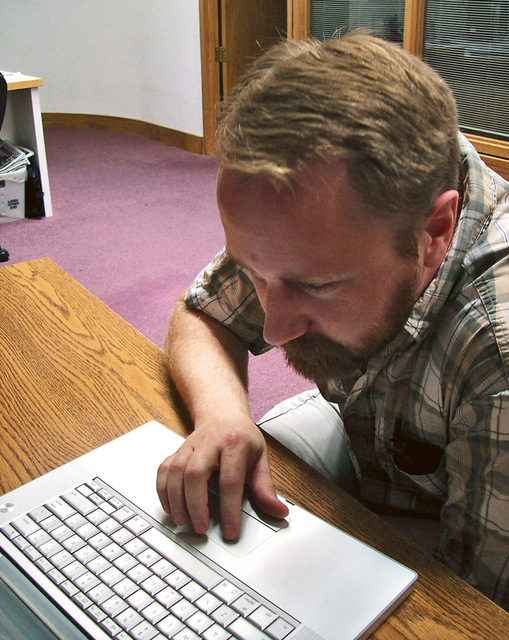When Jim Coker started performing live electronic shows 12 years ago, he found himself frustrated by the available software. "And I had this other problem, which is that I’m a software developer," he says, half-joking. "Then I had some free time." He got to work on a more ideal music program, and after about a year, he had something worth putting out. It’s been five years since Coker, an Albuquerque resident, began. The program’s still a work in progress, but he says he’s created a product that provides a decent middle ground in the world of electronic music software. It’s called Numerology, because it’s numerically based. "A lot of musical composition is based on mathematical ideas," he says. "It just seemed to stick. There’s this idea that there’s meaning in numbers, and I think that’s important." He’ll give a workshop as part of this year’s Oscillation Electronic Music Festival, a three-day, all-ages event sporting 18 live bands and six DJs from Oct. 10 through Oct. 12. Coker’s software allows users to compose with more experimental aspects of music and break out of the idea that music needs to work within even patterns. "One of the strengths of the software is you can work with odd-number ratios and patterns," he says. "You can have a pattern of five against a pattern of seven and get a lot of interesting results from that."The name is intended to bring those ideas to the forefront of what he’s created, he says. "Instead of trying to sound like everything else, you can use this to sound a bit different."You can download a free Numerology demo at Coker’s website, five12.com. The demo comes with instructions and examples. After a brief demonstration in the Alibi offices, I decided to try out the program on my home computer to see how challenging it is for a beginner to use. I’m completely unfamiliar with sequencers or the "virtual rack" metaphor that’s used in programs like Reason and Numerology. But Coker says his program should be valuable to users with a wide range of musical and technological backgrounds and interests.A fast-and-dirty description: Numerology breaks the basic elements of music into separate building blocks you can control independently. First, you might add a melody module, then add another block to affect the melody’s rhythmic pattern, then overlay a chord progression for that melody to travel through. The program’s controls are simple to use and would be easy to manipulate live. "It allows you to experiment very effectively without having to sit down and read a long manual or learn a lot of details about concepts behind audio synthesis and composition," he says.Speaking as someone who’s fairly anti-manual, I was able to mess around with Numerology during my maiden voyage with some degree of success. It took maybe 30 minutes to figure out which module was controlling what, but once I did, I was able to change the sounds intentionally.Coker says his program should be useful to anyone interested in electronic music. One drawback is that, so far, you can’t output your work directly from Numerology as a WAV file or AIF. Instead, Coker recommends running it in conjunction with recording software like Logic.Coker’s assembling a 12-lesson course for the Center for Contemporary Arts in Santa Fe, and every once in a while, Numerology composers get together and perform live. He says he values feedback. "I have users all over the world that send me interesting ideas," Coker says. "Some of them are kind of crazy and don’t make sense, but some of them are kind of crazy and make a lot of sense."
Coker will present a workshop on Saturday, Oct. 11, at 3 p.m. as part of this year's Oscillation Electronic Music Festival. All workshops take place at The Agency. Cost is $5 for all three, or they come free with a three-day Oscillation Pass. For complete Oscillation lineup and workshop information, go to myspace.com/oscillationfest.










